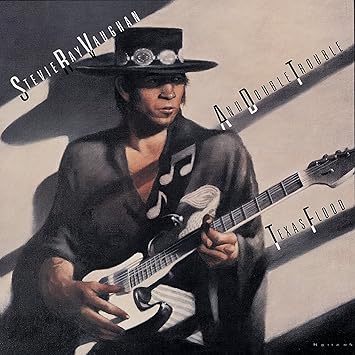Stevie Ray Vaughan and Double Trouble: Mary Had A Little Lamb
[
purchase]
Ultimately, what underlies this blog, over its long history, is recorded music. And while Edison may not have been the first person to figure out how to record stuff that could be played back (that achievement is currently credited to Édouard-Léon Scott de Martinville, who invented the phonoautograph in the mid-1850s, but never profited from it), he was the one who popularized it, and in the technology world, the glory often goes not to the first, but to the best or luckiest marketer.
The first thing that Edison recorded in 1877 was the nursery rhyme, “Mary Had a Little Lamb.” That original recording has been lost, but a recording of the rhyme on an Edison machine in 1878 by Thomas Mason, a St. Louis newspaper political writer, still exists, and you can hear that
here, after some music. (It is wrongly attributed to Edison, as you can read
here.) In 1927, at the Golden Jubilee of the Phonograph ceremony, Edison recalled that fateful day, and you can hear that
here. And if you are interested in the disputed history of the writing of the original rhyme, the
Wikipedia article is
here.
Although there’s sort of a sing-song tune that goes along with the rhyme, we are not going to discuss that, even though it is probably already lodged in your brain right now. Sorry. Instead, we will jump ahead to 1968, and an album by soon to be Blues Legend Buddy Guy,
A Man and the Blues, on which he recorded a
fun, bluesy version of “Mary Had a Little Lamb,” throwing in a little “A Tisket, A Tasket,” for good measure.. (In 1990, when my son was all of two months old, my wife and I brought him to Central Park to a free Buddy Guy show. We did stand in the back—somewhere in
this picture, maybe--but Buddy jumped off the stage and ran through the crowd playing, and came right up to us. Begging the question whether we were very good or very bad parents. I don’t recall whether he played “Mary” that day, because I was enthralled by his playing, and was worried about my infant son and his mother, considering that I had been a father for all of two months and had no clue what I was doing.)
Frankly, though, I first became aware of the tune from Stevie Ray Vaughan’s version on his debut album from 1983,
Texas Flood, which spawned the better known singles "Pride and Joy" and "Love Struck Baby," and the great
live version on
Live Alive.
There’s really not much more to say about it—it was clearly a goof when Guy recorded it (if brilliantly done), and Vaughan seemed to regard it similarly, but also as another showcase for his incendiary guitar playing.
OK—one more thing. This
article, which discusses the song, posits that Guy swiped the song, knowingly or not, from Freddie King’s instrumental “
Just Pickin',” which itself may have been nicked from another bluesman, Earl Hooker, whose song “
Two Bugs and a Roach” sounds similar. Who knows?
No one, though, seems to have sued anyone over the royalties.






























































































































































































































































































































































































